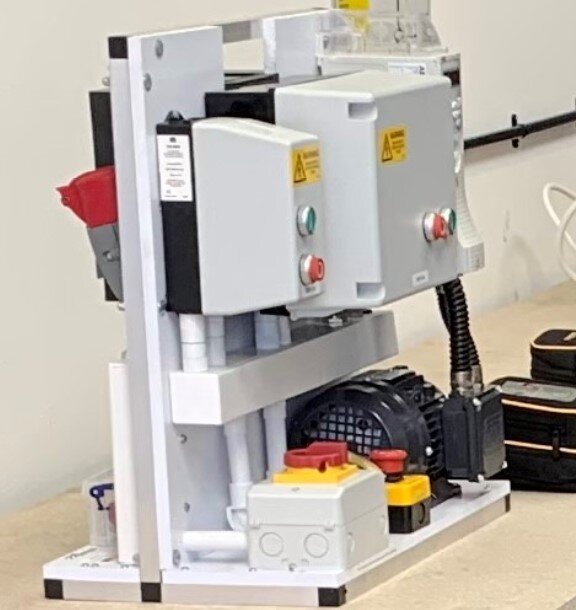 Image 1 of
Image 1 of

Mechanical to Electrical Part 2
Prices Quoted Exclude VAT
Course Type | Electrical, Technical Skills
Certificate | MCP Training Certificate
Duration of Course | 4 Days
Location | Reading or Solihull
Prices Quoted Exclude VAT
Course Type | Electrical, Technical Skills
Certificate | MCP Training Certificate
Duration of Course | 4 Days
Location | Reading or Solihull
Prices Quoted Exclude VAT
Course Type | Electrical, Technical Skills
Certificate | MCP Training Certificate
Duration of Course | 4 Days
Location | Reading or Solihull
About Mechanical to Electrical Part 2
Mechanical to Electrical – Part 2 is aimed at technicians who have completed Part 1 of the Mechanical to Electrical Programme, or have some basic understanding of electrical systems.
This City & Guilds Accreditation Certificate, 16-day programme is offered across 4 parts, each part consisting of a 4-day programme. This is specifically structured to aid technicians’ progression and allows for suitable on-site consolidation of training prior to delivery of the next part.
The Mechanical to Electrical Programme is also available as an on-site, cost-effective alternative to our regular public training courses held at our training centre in Reading.

Is it right for me?
The Mechanical to Electrical - Part 2 builds on the knowledge gained in Part 1. Technicians will broaden their knowledge base and be able to successfully complete a wider range of tasks involving electrical systems, including:
Termination of cables
Resetting overloads
Changing fuses
Isolation
Change of motor (like for like)
Change of direction of motor

What will I learn?
Health and Safety
Isolation procedure
Relevant parts of BS7671 IET Wiring Regulations and Electricity at Work Regulations
Cables/systems: further termination of a range of single core, sheathed and armoured cables
Circuits: connection of a range of single phase and three phase motors and starters
Methods of protection including motor overload units
Direct on line and star delta starters
Motor control using soft starters and inverters
Remote control stop/start stations
Circuit wiring and block diagrams
Motors: replace single and three phase motors like-for-like
Change of direction
Fault finding
Measurement of voltage, insulation resistance and continuity
Theory to support the practical activities listed above

The benefits?
Motivation and development of staff
Improved staff retention
Formal targeted training with direction and focused on business need
Encouragement of teamwork through coach and assessor communicating more with opposite trade
Re-focused training budget
SOPs and training packages are written around business need
Improved productivity as downtime is reduced due to increased skills base
Cross-cover of skills in event of absenteeism, sickness etc.
Nationally recognised qualifications where appropriate; skills are validated
Training records meet and exceed those required by HSE etc.
